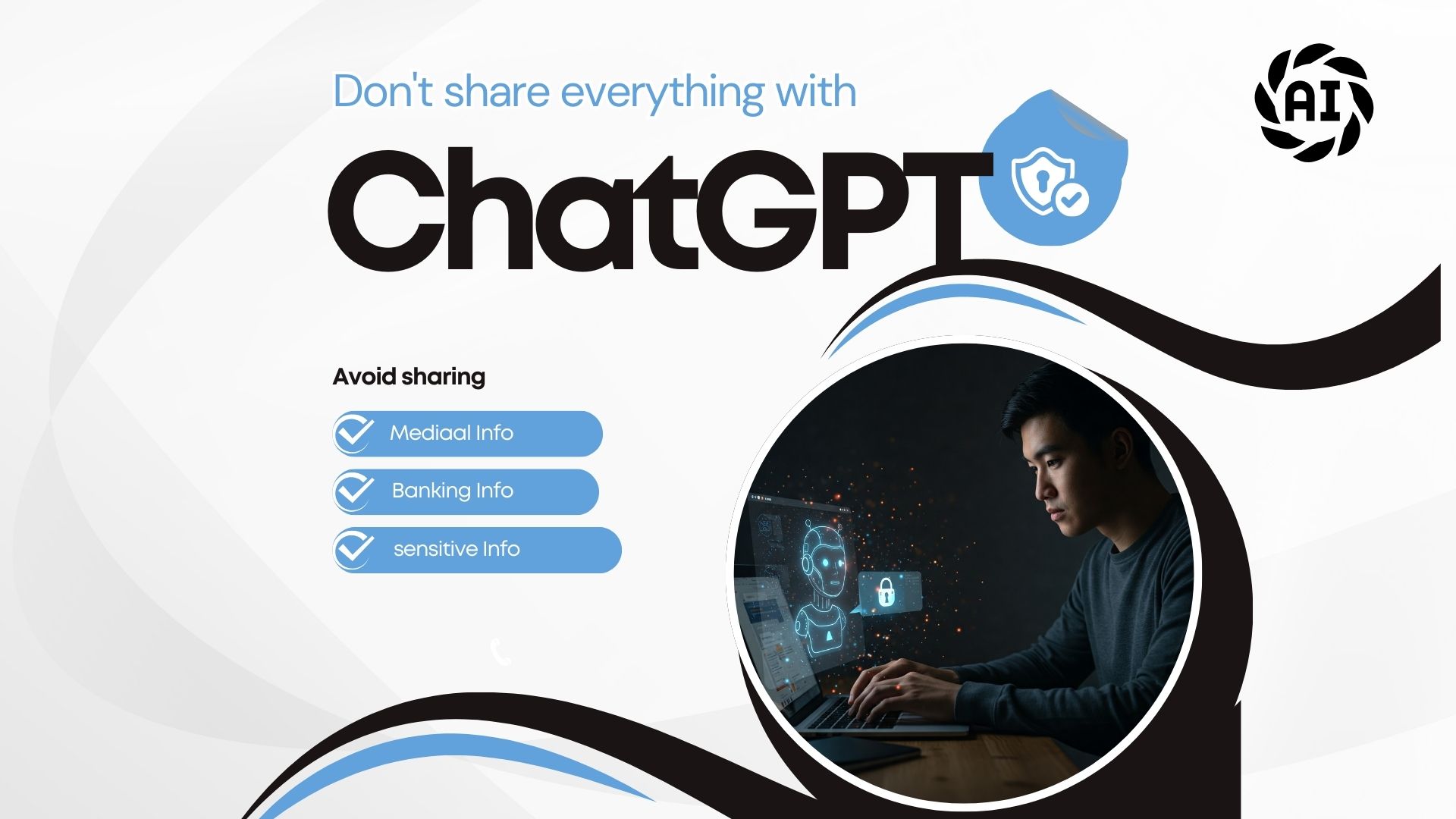Artificial intelligence chatbots like ChatGPT have revolutionized how we work, learn, and communicate. These powerful tools can draft emails, generate code, and even offer advice—but they aren't foolproof. While AI provides immense convenience, it also comes with risks, particularly when it comes to privacy and security.
Not everything should be shared with an AI chatbot. Whether you're using ChatGPT for business or personal tasks, knowing what to keep private can prevent data leaks, identity theft, and even legal trouble.
While these platforms can feel remarkably human-like in their interactions, they are ultimately sophisticated algorithms operating on vast datasets. Treating them as confidante's privy to your most sensitive details is a recipe for potential risk. The digital landscape is already fraught with data breaches and privacy concerns; willingly handing over your personal keys to an AI, however helpful it may seem, amplifies these vulnerabilities. The risks are not theoretical. In 2023, OpenAI itself experienced a data breach, exposing user chat histories and payment information. This real-world incident underscores the importance of exercising caution.
So, what falls under the category of "never tell"?
The list is more extensive than you might think. As personal tech expert form WSJ Nicole Nguyen warns, you should avoid sharing personal identity information, medical information, banking or investment information, sensitive corporate or company information, and login information with a chatbot like ChatGPT. At the forefront are the obvious identifiers: your Social Security number, driver's license details, and passport information. These are the keys to your identity in the real world, and their exposure in the digital realm can lead to severe consequences, from identity theft to financial ruin.
Even seemingly harmless details like your date of birth, home address, and phone number can be combined to form a comprehensive personal profile. This information can be exploited for targeted scams, harassment, or even physical security risks.
When it comes to your financial safety, one rule stands above all: never share your banking info, credit card numbers, or any other financial account details—ever. AI chatbots are not secure financial institutions, and entrusting them with such data is akin to leaving your wallet wide open in a public square
The boundaries extend to your professional life as well. Confidential work-related information, client data, and trade secrets should remain strictly within secure, designated channels. Feeding proprietary information into a chatbot, even for seemingly harmless tasks like summarizing notes, exposes your company and clients to potential data leaks and competitive disadvantages.
Furthermore, resist the urge to share your login credentials for any online service. These are the gatekeepers to your digital life, and their compromise can have far-reaching implications.
The seemingly harmless act of discussing personal health information also warrants caution. While AI can provide general information, it's not a healthcare professional, and sharing sensitive medical details carries privacy risks.
So, how can you leverage the power of AI chatbots responsibly?
- Assume every interaction is potentially public: Remember that your conversations are being processed and stored, even if anonymized.
- Err on the side of omission: If you have any doubt about sharing a piece of information, don't.
- Utilize privacy settings: Explore the platform's privacy controls and consider deleting chat histories regularly.
- Consider anonymous alternatives: For tasks that don't require personal input, explore AI tools that prioritize user anonymity
While AI chatbots offer remarkable utility, they are not replacements for human trust and discretion. By adhering to this golden rule – never reveal sensitive personal information – you can harness the power of these technologies while safeguarding your digital identity and privacy in an increasingly interconnected world. Treat these powerful tools with the respect and caution they demand, and your interactions will remain both productive and secure.

